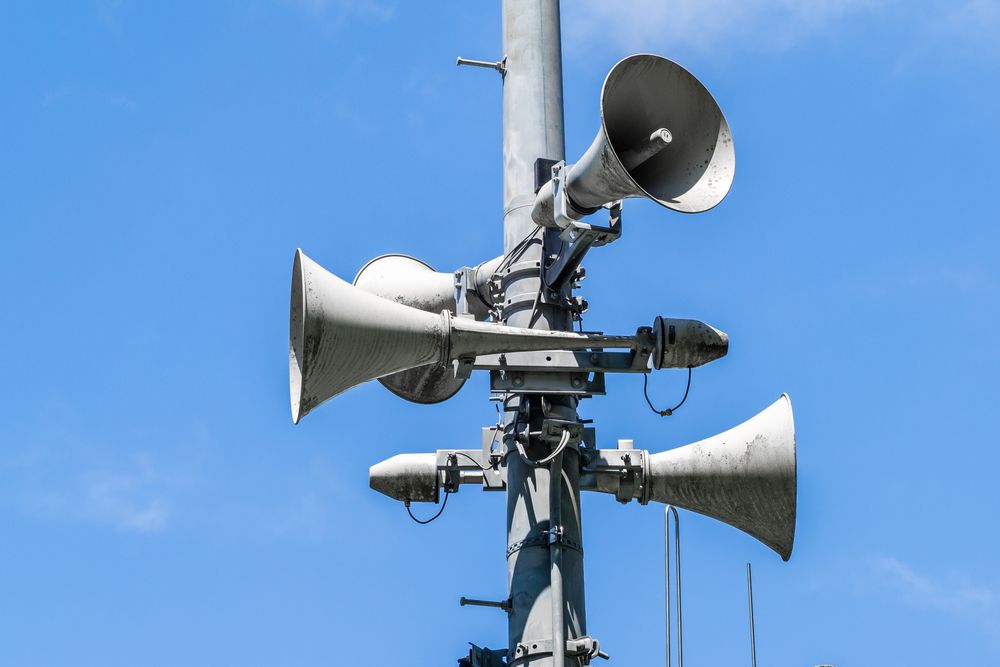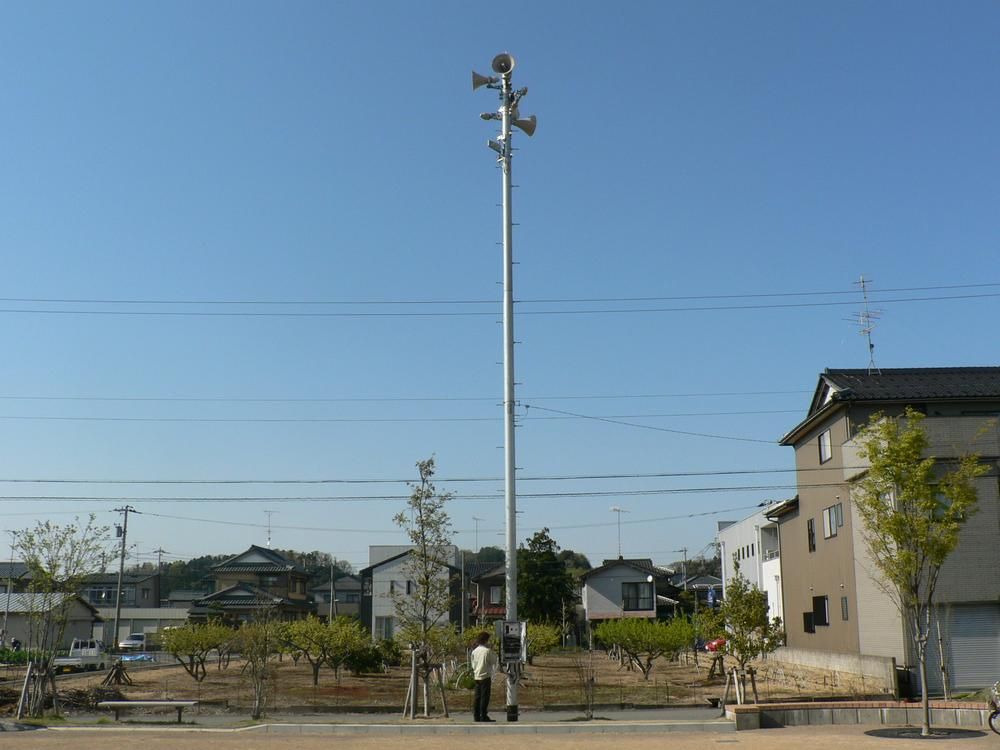
The loudspeaker of Japan’s national disaster warning system in Owkudani Hakone, Japan. Photo: WAN CHEUK NANG/Shutterstock.com
For those living in disaster prone areas, the wail of an outdoor warning siren routinely disrupting your peace is all too common. These loudspeakers, that make up the often county-wide network of disaster warning system, has to be regularly tested, but instead of blaring their horns and needlessly jangling the nerves of the citizens, why can’t outdoor warning sirens play soothing music during tests? That’s precisely what progressive nations like Japan do.
Everyday at 5 p.m., loudspeakers across the country play out different folk music to check that the disaster warning system is in working order. These daily broadcasts are known as shichōson bōsai gyōsei musen hōsō (“local government disaster administration wireless broadcast”), or bōsai musen (“disaster wireless”) for short, but are commonly referred to as goji no chaimu (“the 5 p.m. bell”).
The local government decides what melodies to play. The most common choices are children's nursery rhymes such as Yuyake Koyake, (“Red sunset sky”), Kaero kaero to (“Go home, go home”), and Akatonnbo (“Red dragonfly”). Others prefer foreign music, such as “Moon River”, from Breakfast at Tiffany, “Colonel Bogey March” from The Bridge on the River Kwai , and “Edelweiss” from The Sound of Music. Listen to some of the melodies recorded in different locations.
Bōsai musen heard in Atami, Shizuoka Prefecture.
Bōsai musen heard in Suzaka city, Nagano Prefecture.
Bōsai musen heard in Chiba city, Chiba Prefecture.
Bōsai musen heard in Higashimurayama, Tokyo Metropolis.
The timing of the daily tests also varies from locality to locality. While 5 p.m. is the most common, some play at noon. Others have two test broadcasts a day, one at noon and one in the evening, usually at six.
The tests are so regular that many Japanese people have scheduled their daily routines around these chimes. For an office worker, it might mean a signal to end work. For kids, it might be a reminder to head home before dark.
Some localities also use the bōsai musen as a public announcement system, reporting local news, upcoming events, births and deaths and so on. But some local governments get so overzealous with their use, that they end up becoming a nuisance, such as the pointless “Good morning!” broadcasts that jolts awake sleeping residents of one particular town in Ishikawa Prefecture every morning at 7 a.m. This particular town also issues multiple broadcasts throughout the day reminding people about their social responsibilities—dispose garbage properly, sign up for health examinations and speak kindly to children.

Photo: Alice Gordenker
The nationwide disaster warning system was installed about 50 years ago following the 1964 Niigata earthquake. Nine out of every ten Japanese town today have a bōsai musen. They are linked to a national system that can transmit warnings throughout the country in just seven seconds. The current satellite based early warning system, J-Alert, that was launched in 2007, can inform local authorities in as less as one second. It takes another four seconds for the alert to be relayed to the masses.
An outdoor warning system might sound very old fashioned in today’s world of mobile phones and Twitter, but they are irreplaceable, especially for a country as vulnerable as Japan. The system is being upgraded to make it even more useful, so that now they can transmit alerts to mobile phones and fax machines, and insert messages into radio and television broadcasts.
References:
# Japan Times, https://www.japantimes.co.jp/news/2013/04/16/reference/bosai-musen/#.XpqC2iWRUlQ
# Atlas Obscura, https://www.atlasobscura.com/articles/japan-5-pm-chime
# Tokyo Files, https://thetokyofiles.com/2015/10/10/the-5-pm-song/


